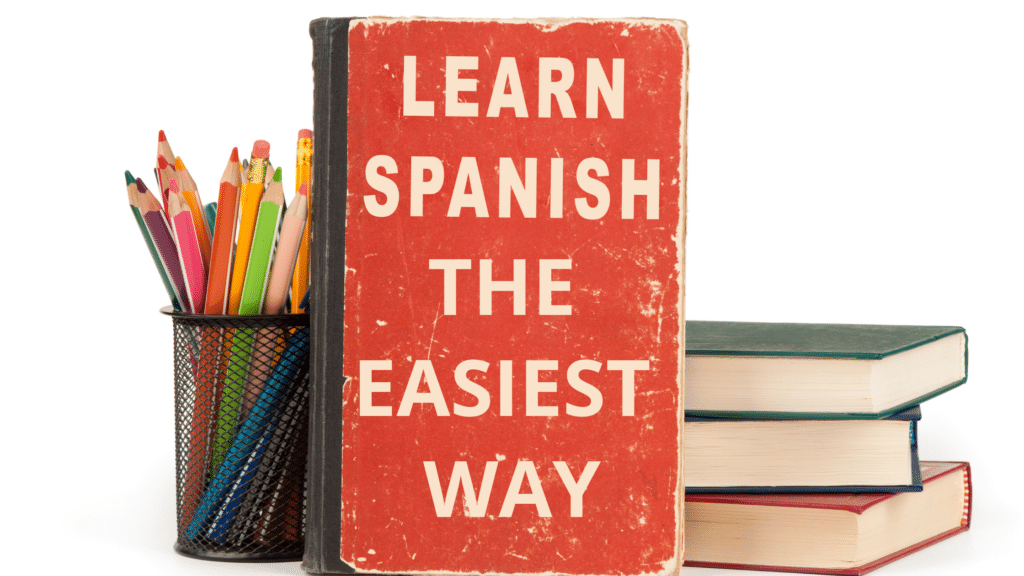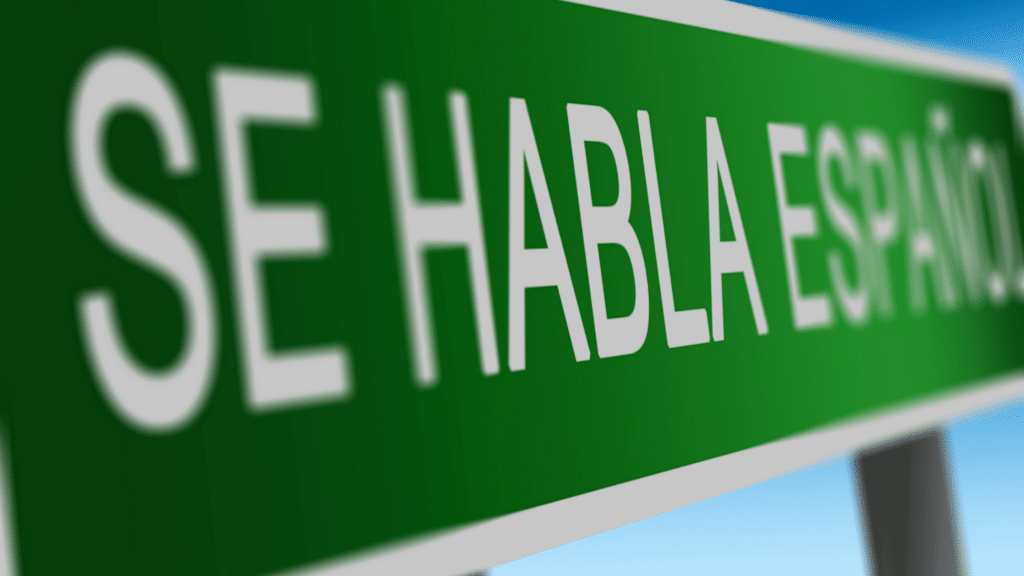
Why Spanish is the Easiest Language for English Speakers to Learn
What if I told you that you have the luckiest ticket?
You are an English speaker, right? If you are reading this article, we are going to go with “yes.”
And you want to learn Spanish past the “tacos locos dónde está el baño por favor sí se puede vámonos picante” run-on sentence readily tucked up your sleeve to make the cute barista laugh after you find out she used to be a Spanish teacher. (By the way, she appreciates more original humor). Or you would like to brush up on it after the near miss that was your junior year of high school when el pretérito v. imperfecto nearly had you short circuiting your brain when you needed all those synapsis firing hot for AP Chemistry the hour after Spanish class.
The reasons for learning Spanish or improving your existing conversational skills are pretty much endless. And you know what they are, so we will cut to the chase.
What’s this luckiest ticket?
It is you, a native English speaker. Here are just a few reasons why Spanish is the easiest language for English speakers to learn.
 It Is the fact that you speak this passport-stamping language with ease and do not have to struggle to do so. The fact that correctly pronouncing the words “through,” “bough,” and “cough” does not even make you blink. It is realizing how many sounds the letter “a” can make long after you have learned to make them naturally (say: father, private, tall, happy, zebra, cape).
It Is the fact that you speak this passport-stamping language with ease and do not have to struggle to do so. The fact that correctly pronouncing the words “through,” “bough,” and “cough” does not even make you blink. It is realizing how many sounds the letter “a” can make long after you have learned to make them naturally (say: father, private, tall, happy, zebra, cape).
What you might not realize is that learning Spanish as an English speaker is the easiest direction to learn a foreign language. Proven scientific fact. Well, maybe not so much a scientific fact as a humble opinion of yours truly. But I can prove it to you.

English has a plethora of unruly pronunciation phenomena. Please explain why “through,” “bough,” and “cough” all end with the same letters but sound different. And what about “stare” v. “stair,” “lie” v. “lye,” or “weather” v. “whether?” Although English comes partly from the romance language, Latin, its pronunciation is nothing like its Spanish counterpart as far as consistency goes.
Spanish vowels are pure. As in, they each make ONE sound only. Always. Take a look.
PURE VOWELS:
-
The Spanish “a” ALWAYS says “ah” as in open wide for the dentist always.
-
The Spanish “e” ALWAYS says “eh” as in Mount EHHHverest. always.
-
The Spanish “i” ALWAYS says “eeee” as in the cheesy smile sound when you think of yourself. (get it? the letter “i”? as in me, myself and i?). always.
-
The Spanish “o” ALWAYS says “oh” but without the “w” sound at the end. no closing your lips! leave them ooopen in a little round “o.” always.
-
The Spanish “u” ALWAYS says “oo” (as in tooth, booth, smooth, goop, boop, p- … alright, you get it). always.

Predictably, when you smoosh two vowels together in a word, they STILL both say their individual sounds if you slow the word down enough to recognize that. They just sound blended together as a melody unless there’s an accent over one vowel which means “say me louder!”
With a few pieces of information on Spanish letter sounds (including those pure vowels we just talked about) and syllable emphasis, any English speaker can coach himself through correct pronunciation of a totally unknown new Spanish word. It’s simple enough to include those information tidbits right here, right now!
TRICKY LETTERS:
- “H” is completely silent, forever and always. Think of how you hear “hola” pronounced.
- “J” is the new “H.” Think of how you’re supposed to say “jalapeño.”
- “LL” is usually a “y” sound (although it varies depending on the country and could be a light “zh/j” sound or even “sh”). Think “tortilla.”
- “Ñ” is a snooty version of regular “N” … just wrinkle your nose when you say it (like the English word “canyon”).
- And finally, the “qu” sound does not include a “w” sound. For example, “que” is “keh” (not “kweh”) and “qui” is “key” (not “kwee”).

Spanish verb tenses, although notoriously too abundant, follow very predictable patterns, making them a lot more straight-forward to learn and formulate than English verb tenses
Cognates are a thing! Between English and Spanish there are a lot of words that you already know simply because of how twin-like they are in spelling or sound to the counterpart.
There are plenty of opportunities to learn Spanish living all around us. With Spanish you are not having to dig through Netflix for a good comedy series or a good movie like you would if you were learning Croatian or Armenian. Unless you live in niche pockets of the US, chances are grater (excuse me… “greater”) that you will have Spanish speaking neighbors. You can even walk around many large chain stores reading just as much Spanish on signage as English. Opportunities abound. Spanish speakers are generally very open, hospitable, and patient with Spanish language learners.
 And there you have it. A non-exhaustive list of reasons you are lucky to be an English speaker learning Spanish. You did not learn English overnight, so you will not learn Spanish or any language overnight. Spanish may or may not be an easy language for everyone to learn, but you can thank your lucky stars for a terrific head start because you are an English speaker.
And there you have it. A non-exhaustive list of reasons you are lucky to be an English speaker learning Spanish. You did not learn English overnight, so you will not learn Spanish or any language overnight. Spanish may or may not be an easy language for everyone to learn, but you can thank your lucky stars for a terrific head start because you are an English speaker.
{{cta(‘b45f05e7-6e06-4082-8caa-d58c22ae967b’)}}





Responses